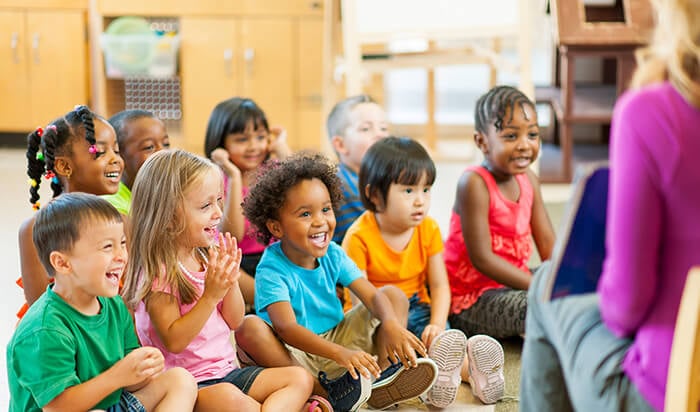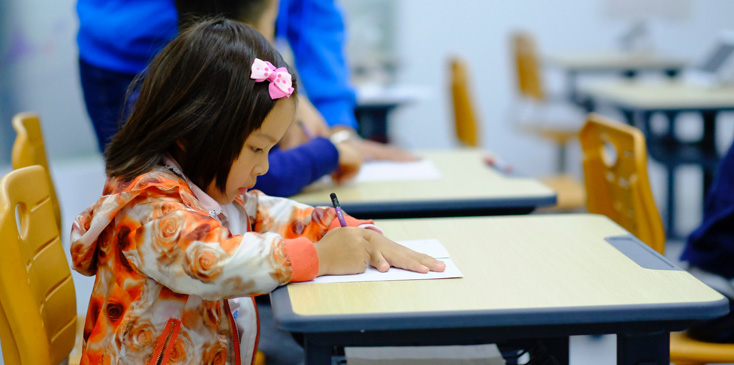Early childhood education is important because it lays the foundation for a child’s future learning and development, providing them with essential skills and knowledge that will shape their academic and personal success. Research shows that children who receive high-quality early childhood education are more likely to excel academically, have better social skills, and experience long-term positive outcomes in their lives.
Furthermore, early childhood education promotes brain development, language acquisition, and critical thinking skills, giving children a strong start in life. It is during these crucial early years that children’s brains are highly receptive to learning, making early childhood education crucial for providing them with the optimal environment and experiences they need to thrive.
Investing in early childhood education is not only beneficial for individual children but also for society as a whole, as it has been proven to reduce poverty, crime, and inequality. By prioritizing early childhood education, we are ensuring a better future for our children and our society.

Credit: www.umassglobal.edu
1. Enhances Academic Success
htmlCognitive Development
Early childhood education plays a vital role in enhancing cognitive development. During the early years, children’s brains are highly receptive and adaptable, making it a critical period for learning. Quality early education programs provide a stimulating environment where children can engage in activities that promote problem-solving, critical thinking, and logical reasoning, all of which contribute to their academic success.
Language Development
Language development is another important aspect of early childhood education. Children are exposed to a rich language environment that helps them expand their vocabulary, improve their communication skills, and develop a strong foundation for literacy. Through storytelling, conversations, and language-focused activities, educators create opportunities for children to express themselves and engage in meaningful interactions.
Literacy Skills
Early childhood education also plays a significant role in developing essential literacy skills. Educators introduce children to concepts such as letters, sounds, and words through interactive and play-based approaches. By creating a literacy-rich environment, young learners develop phonemic awareness, letter recognition, and early reading and writing skills, setting the stage for future academic success.
2. Promotes Social And Emotional Development
Promotes Social and Emotional Development
Routine activities and structured play in early childhood education settings help children develop crucial skills for social and emotional development. Self-confidence is fostered as children are encouraged to explore and learn while being praised for their efforts. Through interactions with peers and educators, children develop their social skills and learn to empathize with others, fostering a sense of compassion.
Early childhood education also provides opportunities for children to learn conflict resolution skills. They learn how to negotiate, communicate effectively, and find solutions to problems, supporting their overall social development.
| Self-Confidence | Empathy and Compassion | Conflict Resolution Skills |
| Encourages exploration and learning | Developed through interactions with peers | Opportunities to learn negotiation and communication |
| Praise for efforts boosts confidence | Fosters understanding and care for others | Problem-solving skills are developed |
3. Develops Essential Life Skills
Early childhood education plays a crucial role in the development of essential life skills. Communication skills, for instance, are honed during this phase as children learn to express their thoughts, ideas, and feelings effectively. By engaging in conversations and group activities, they develop the ability to articulate their needs and collaborate with peers.
Problem-solving skills are also cultivated through early childhood education. As children face various challenges, they learn to analyze problems, think critically, and find solutions. This fosters their independence and prepares them to tackle future obstacles confidently.
Critical thinking skills are another important aspect of early childhood education. Through play-based learning and hands-on activities, children are encouraged to explore and question the world around them. They develop the ability to think critically, analyze information, and make informed decisions.
1. Reduces Economic Inequalities
Early childhood education plays a vital role in reducing economic inequalities. It breaks the cycle of poverty by providing children from disadvantaged backgrounds with access to quality education. By giving them a strong foundation, it increases their chances of success in the future. Early childhood education also opens up job opportunities for individuals, as it equips them with the necessary skills and knowledge to pursue further education or enter the workforce. With a well-educated workforce, society as a whole benefits. Moreover, early childhood education has been found to lower crime rates. When children are given the opportunity to learn and develop in a safe and nurturing environment, they are less likely to engage in criminal activities later in life.
2. Strengthens Communities
Early childhood education plays a crucial role in strengthening communities. One of the ways it achieves this is by improving parental involvement. Engaging parents in their child’s education from an early age fosters a sense of responsibility and promotes a collaborative approach between parents and educators. This involvement can be through participation in school activities, parent-teacher meetings, or volunteering in classrooms. Such active involvement creates a support network that benefits both children and parents.
Furthermore, early childhood education promotes social integration. Preschools and early learning centers bring children from diverse backgrounds together, fostering a sense of inclusion and acceptance. This exposure to different cultures and experiences builds empathy, social skills, and understanding, which are essential for creating a harmonious and inclusive society.
Moreover, early childhood education supports community development. By investing in quality early learning programs, communities can ensure that children receive a strong educational foundation, setting them up for success later in life. This focus on education contributes to the overall development of the community, attracting families, businesses, and resources that further enhance the community’s growth and prosperity.
1. Supports Parent-child Bonding
Supports Parent-Child Bonding: Early childhood education plays a crucial role in supporting parent-child bonding. It provides an opportunity for parents to actively participate in their child’s learning journey. By involving parents in the educational process, they can develop a stronger bond with their child.
Parenting Skills Development: Early childhood education programs also focus on enhancing parents’ parenting skills. These programs provide parents with the necessary knowledge and resources to effectively support their child’s development. They learn about the best practices in early childhood education and gain insights into fostering their child’s cognitive, social, and emotional growth.
Parental Engagement in Education: Early childhood education encourages parental engagement in education. Parents are encouraged to become active participants in their child’s education, attending parent-teacher meetings, workshops, and other school events. This involvement not only strengthens the parent-child bond but also helps in creating a positive and supportive learning environment.
Nurturing Healthy Relationships: Early childhood education promotes the development of healthy relationships. Through interaction with educators and peers, children learn essential social skills, including sharing, empathy, and communication. These skills contribute to the establishment of positive relationships, which are crucial for the child’s future success and overall well-being.
2. Provides Guidance And Support
Access to Parenting Resources: Early childhood education provides parents with access to a wide range of resources that can help them navigate the challenges of raising young children. These resources can include books, websites, workshops, and classes that offer advice and information on topics such as child development, nutrition, and behavior management.
Connection with Other Parents: Early childhood education programs also offer parents the opportunity to connect with other parents who are facing similar challenges. This sense of community can be invaluable for parents, as they can share their experiences, learn from each other, and build supportive relationships.
Empowerment and Skill-Building: Early childhood education empowers parents by equipping them with the knowledge and skills they need to make informed decisions about their child’s upbringing. Through workshops and classes, parents can learn effective communication techniques, positive discipline strategies, and ways to support their child’s learning and development.
Conclusion
Early childhood education is of utmost importance as it lays the foundation for a child’s future academic, social, and emotional growth. By providing children with a quality education at an early age, we equip them with the necessary skills and knowledge to succeed in school and beyond.
It helps foster their cognitive development, enhances their language skills, and promotes their overall well-being. Investing in early childhood education is investing in the future of our society. Let’s prioritize the education of our young ones and give them the best start in life.







